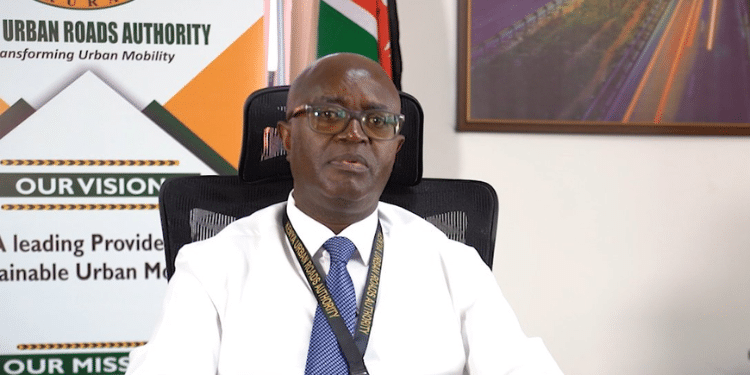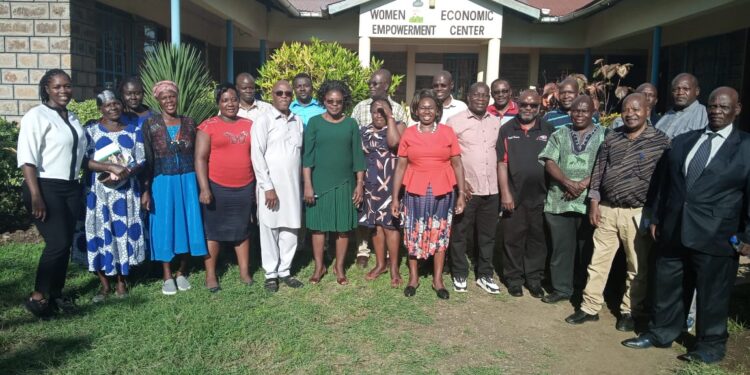In the picturesque yet troubled fishing villages dotting the shores of Lake Victoria, a shadow looms over the lives of thousands of women. For decades, a deeply entrenched practice known as jaboya—translated as “sex for fish”—has perpetuated cycles of exploitation, poverty, and disease. This exploitative arrangement forces female fish traders to engage in sexual relations with fishermen to secure their daily catch, leaving them trapped in a system that undermines both their dignity and health.
But against all odds, hope shines through in the form of grassroots organizations like Development Knowledge Link Africa (DEVLINK), which is leading the charge to dismantle this harmful practice. Under the visionary leadership of its Executive Director, Esther Soti, DEVLINK has pioneered innovative strategies centered on economic empowerment, education, advocacy, and community engagement. Their groundbreaking work offers a blueprint for how systemic change can be achieved even in the face of daunting challenges.
The Roots of Exploitation: Unpacking the Jaboya System
To understand why jaboya persists, one must delve into the socioeconomic and cultural dynamics at play. In these communities, men predominantly control access to fish and dominate fishing activities, while women are relegated to trading roles without financial independence. With fish stocks dwindling due to overfishing and environmental degradation, competition for limited resources has intensified, forcing women into exploitative arrangements to secure their livelihoods.
Traditional gender roles further entrench this imbalance. Women are expected to trade fish but lack the capital or bargaining power needed to compete in the market. Meanwhile, cultural norms normalize the jaboya system, making it seem inevitable rather than unacceptable. These factors combine to create a vicious cycle where women remain economically vulnerable and socially marginalized.
The consequences extend beyond individual suffering. Studies have shown that fishing communities around Lake Victoria have some of the highest HIV prevalence rates globally, with jaboya being a significant contributing factor. The direct link between transactional sex and rising HIV/AIDS infections creates ripple effects across families and communities, compounding the urgency of addressing this issue.
A Holistic Approach: DEVLINK’s Multifaceted Strategy
Recognizing the complexity of the problem, DEVLINK has adopted a comprehensive approach to combat jaboya. At the core of its strategy lies the belief that economic independence is key to breaking free from exploitation. By providing women with alternative livelihood opportunities, DEVLINK empowers them to chart new paths toward self-sufficiency.
Also Read: Joseph Rehmann; Billionaire Behind Largest Fish Selling Company in Kenya
Through skills training programs, DEVLINK equips women with the tools they need to pursue diverse income-generating activities. These include dressmaking, weaving, jewelry making, beadwork, pottery, baking, catering, and value-added processing of agricultural products. Participants also gain access to group savings schemes and internal loaning systems, enabling them to secure low-interest loans to grow their businesses.
Take Mary Akoth, for instance. Once a fish trader reliant on jaboya, she now runs a thriving bakery business thanks to DEVLINK’s support. “I no longer depend on anyone,” she says proudly. “My family eats well, my children go to school, and I feel respected in my community.” Stories like Mary’s underscore the transformative potential of economic empowerment.
Education serves as another cornerstone of DEVLINK’s efforts. Through workshops, school programs, and community forums, the organization educates women and girls about their rights, safe business practices, and the dangers of transactional sex. These campaigns aim to shift mindsets and foster self-reliance.
One standout example comes from 16-year-old Naomi Otieno, who participated in DEVLINK’s youth mentorship program. Inspired by what she learned, Naomi began advocating against jaboya within her peer group, helping dozens of young women resist societal pressures. Her story highlights the importance of investing in the next generation to drive lasting change.
DEVLINK understands that systemic change requires collaboration with policymakers and enforcement agencies. The organization actively lobbies for stronger regulations to protect women in the fish trade and works closely with law enforcement to prosecute cases of gender-based violence linked to jaboya. Additionally, partnerships with health organizations ensure better access to HIV prevention and treatment services.
Esther Soti emphasizes the importance of local ownership: “We cannot rely solely on foreign aid. It’s time for Kenyans to take responsibility for solving our own challenges.” Her rallying cry has inspired greater involvement from local institutions and government bodies, proving that sustainable solutions must come from within.
Despite significant progress, DEVLINK faced a major setback when USAID funding cuts under the Trump administration impacted nearly 70% of its projects. This blow threatened the sustainability of critical programs aimed at combating jaboya. However, rather than succumbing to despair, Esther Soti doubled down on mobilizing local resources and partnerships.
Her resilience paid off. Local government, businesses, schools, and even small-scale donors rallied behind DEVLINK, ensuring continuity in vital initiatives. This experience underscored the importance of building resilient, locally driven development models that can weather external shocks.
DEVLINK’s holistic approach has yielded remarkable results:
– Over 5,000 women have been trained in alternative livelihoods, enabling them to break free from jaboya. Many have gone on to establish successful enterprises, contributing significantly to household incomes and community development.
– Increased awareness and access to healthcare services have contributed to a decline in new HIV infections in targeted areas. Women report feeling more empowered to make informed decisions about their health and well-being.
– Community-led advocacy efforts have begun to challenge traditional attitudes, paving the way for greater gender equality. Men, too, are increasingly recognizing the benefits of supporting women’s economic empowerment.
– Collaborations with policymakers have resulted in stricter enforcement of anti-exploitation laws and improved protections for women in the fish trade.
Also Read: Ruto to Address L.Victoria Fishermen Woes in Meeting with Museveni
The fight against jaboya exemplifies the power of integrated, community-centered approaches to tackling complex social issues. By addressing the root causes of exploitation—economic vulnerability, cultural norms, and lack of legal protection—DEVLINK has demonstrated that transformation is possible.
However, the journey is far from over. As Esther Soti reminds us, true development isn’t about handouts; it’s about handing over tools. When we empower women, we empower nations.
As journalists, activists, and concerned citizens, we must amplify the voices of those working tirelessly to create lasting change. Organizations like DEVLINK show us that when empowered with resources and knowledge, women can rewrite their futures and transform entire communities.
The story of jaboya in Kenya’s fishing communities is one of resilience and hope. It is a testament to the indomitable spirit of women who refuse to be defined by their circumstances and the power of collective action to drive meaningful change.
For Esther Soti and DEVLINK, the mission continues. But their success thus far serves as a beacon of hope—not just for Kenya’s fishing communities, but for marginalized populations worldwide striving for equity and dignity.
Follow our WhatsApp Channel and X Account for real-time news updates.










































































